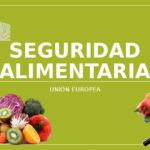“In the health area, Brexit will have an impact on two crucial sectors: medicines and medical devices.
For medicines: we have been working very hard over the last two years together with the European Medicines Agency and national authorities to ensure that everyone is prepared, especially the industry, as they had to adapt the marketing authorisations to the post-Brexit situation.
This requires that certain essential functions (such as being established in the EU, testing and batch release) are performed in one of our Member States. Otherwise, we lose oversight over medicine and create liability gaps, something we cannot afford for medicines, which are not goods like any other. We need to make sure that the medicines sold to EU citizens are safe.
Patients in the EU should not worry about finding the medicines they need. Our rules provide for appropriate procedures to ensure that medicines will reach patients in time and that treatments will not have to be interrupted. We are prepared to coordinate any necessary action to address any problems which might arise and give guidance to doctors and patients through well-established tools such as the “EU network”.
Yet it is crucially important that industry continues to make the necessary arrangements to limit supply disruptions and that Member States are ready to make use of EU legislation to protect patients.
The continued availability of medical devices in the EU27 post-Brexit is also a priority for the Commission.
We have been proactively informing stakeholders of the need to ensure certification of medical devices through an authority within the EU27. Since December 2017, we have been encouraging economic operators to prepare for a possible ”no-deal” scenario, with the aim of mitigating possible negative consequences for patients and businesses.
At the same time, we remain in intense contact with the UK and EU27 to ensure that all certificates for the medical devices issued in the UK, are transferred to the EU27 before the withdrawal date. With this, we aim to minimise problems with supply of medical devices.
When the UK leaves the EU, it will be confronted with an obstacle we got rid of a long time ago: borders.
Borders are not there to add red tape or slow things down. They are there to ensure that the food we eat is not a danger for our citizens and to protect our animals and plants and thus our extremely valuable agricultural patrimony. This is also very important for the UK as it imports more than 73% of its agri-food products from the EU.
New controls will have to be carried out at our borders with the UK. Member States are setting up Border Inspection Posts and the Commission is swiftly approving these.
Member States have also recruited the necessary staff to handle customs and safety checks. More than 2,000 professionals have been recruited in the countries most affected (France, Belgium, Ireland, Netherlands, Denmark).
We are taking the necessary measures to allow UK products and animals still to enter the EU provided the UK has adopted the relevant new legislations and the necessary food safety conditions are met. For example, in order to be able to export products of animal origin to the EU the UK has to be ‘listed’ by the Commission as a third country authorised to export and the food needs to satisfies all EU food safety requirements.
With an agri-food sector representing 130.7 billion euros of exports, it is crucial that we guarantee its safety and sustainability or we would put at risk our worldwide reputation.”
More information
Access the Speech by Vice-President Jyrki Katainen
Related Documents: EU citizens’ rights and Brexit





Leave a Reply